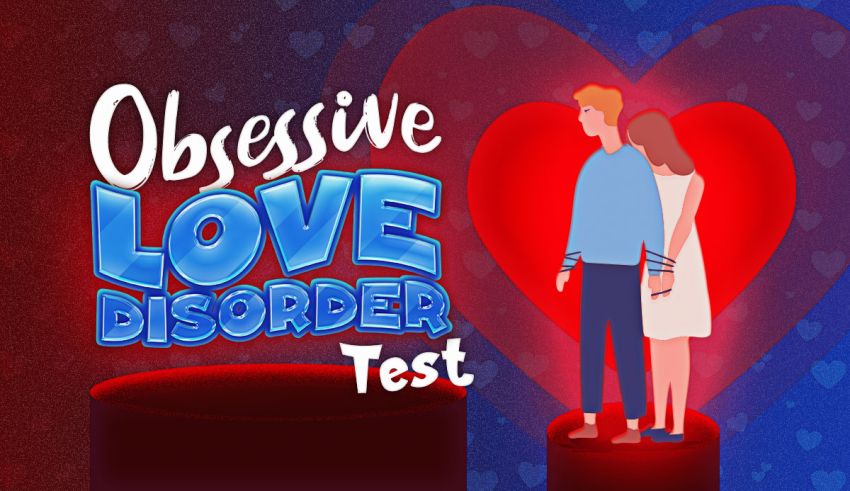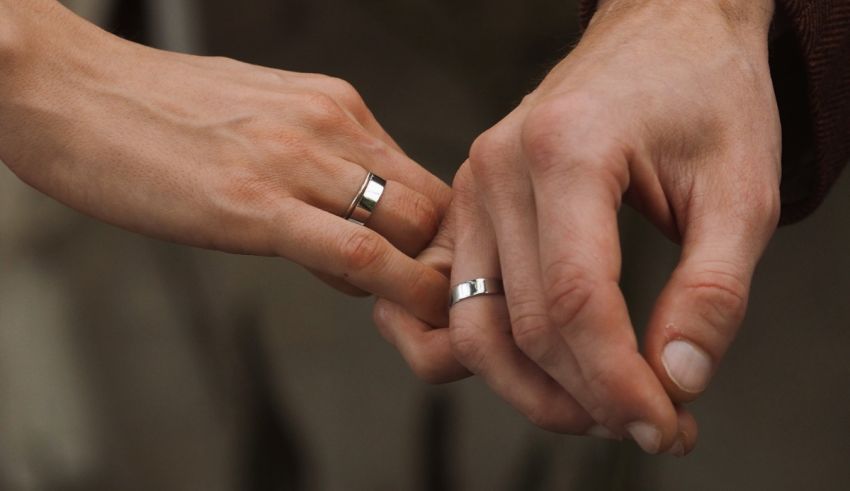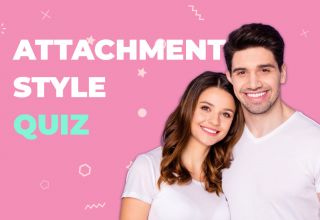
What Is OLD and How to Diagnose It?
In his book, Colors of Love, John Alan Lee, a Canadian Psychologist, writes, “Mania is a type of love described as possessive or obsessive, [and it can] lead to extreme jealousy and codependency.” But as a disorder, OLD is when a person becomes obsessed with another individual they believe they are in love with.
You cannot find Obsessive Love Disorder in the Diagnostic and Statistical Manual of Mental Disorders. So, it’s not a diagnostic condition. But psychologists use other co-occurring disorders such as BPD or OCD to diagnose a patient with OLD.
| Condition | Definition |
| Obsessive Love Disorder | Possessiveness and obsession with another person. |
| Erotomania | Believing that a celebrity is madly in love with you. |
| Codependence | The need to be needed in a relationship |
| Jealousy | Feeling insecure and apprehensive about being abandoned |
Obsessive Love Disorder Test Explained
It’s a 20-question self-report questionnaire that reveals if you are obsessed with another person. The test is also capable of determining your obsession’s stage and its possible causes.
Like the Attachment Style Test, your experiences, behaviors, and emotions are analyzed to deliver the most accurate results.
Find Out If and Why You’re Obsessed with Someone
“Am I in love, or is it obsession?” you might ask. And the test objectively analyzes your emotions to answer that. Sometimes, it’s challenging to draw between pure affection and toxic fascination. But you could at least ensure your feelings are not worrying with the help of a genuine questionnaire.
See If It’s Caused by Your Attachment Style
The actual cause of Obsessive Love Disorder is not clear—as it may vary from one patient to another. But psychologists suggest that your attachment theory explains why someone fixates on others.
The following conditions could lead to OLD or worsen it in most cases. And the test can expose which one might be accompanying your condition.
DED
Disinhibited Social Engagement is an attachment style that results in excessive friendliness, talkativeness, and outgoingness around strangers. People with DED are likely to also grow obsessive behaviors over time and struggle with OLD.
RAD
An individual with Reactive Attachment Disorder is unable or unwilling to form meaningful bonds. Therefore, they might superimpose an idealized image on another person and become obsessed with it.
BPD
The combination of Borderline Personality Disorder and OLD could be dangerous. A BPD patient has an unstable self-image and goes through mood swings all the time. Therefore, they might switch emotions between love and hate towards the same person.
ROCD
Although not an attachment style, Relationship Obsessive Compulsive Disorder could also be the reason behind one’s obsession; in this case, the patient might centralize their attention and compulsive rituals on their relationship. And that could lead to unhealthy behaviors such as possessiveness and control.
Discover Your OLD Stage
A perk of participating in Obsessive Love Disorder is that you realize how bad your condition is. According to Dr. John D. Moore’s work, Confusing Love with Obsession, “OLD takes place or forms in four different stages: Attraction, anxiety, obsession, and destruction.” Here’s what to know about each.
#1. Attraction Phase
During this initial stage, the person with OLD starts idealizing another individual. Daydreaming and fantasizing about that particular person are common signs of the “Attraction Phase” taking place.
#2. Anxious Phase
The second stage is usually when the patient themselves might ask questions like, “Am I obsessed with someone?” It includes growing anxiety and fear of abandonment which encourage possessive behaviors.
#3. Obsession Phase
The third stage of Obsessive Love Disorder is when love turns into extreme jealousy, neediness, and compulsive actions.
#4. Destructive Phase
A person with OLD is often filled with self-hate and insecurity. And at the fourth stage of their obsession, this self-hate turns into anger, which leads to physical or emotional abuse.
Red Flags that the OLD Quiz Looks for
Our test looks for six main symptoms of Obsessive Love Disorder to finetune the results.
Codependency
“They need to be needed” is called codependency or relationship addiction. Interestingly, another term for OLD is love addiction. And most psychologists believe that the two conditions are interconnected. Therefore, the test includes a mini codependency quiz to see how addicted you are to your romantic relationships before generating the real results.
Overprotection
Obsessive Love Disorder might cause paranoia-like thoughts in the patients. So, they might become overprotective and impulsive, thinking that their love is in constant danger. That’s another red flag the test considers to evaluate your condition.
Controlling
The OLD test wants to know if you control or monitor your lover. You’re most likely obsessed with them if you do, and it’s not love.
Possessiveness
Do you subconsciously try to own your partner? If yes, you have Obsessive Love Disorder. That’s another red flag the test takes into account—and it’s crucial to identify your disorder’s stage.
Jealousy
A common question among people with OLD is, “Am I jealous?” Most of them believe their compulsive behaviors are only caused by jealousy, so there’s nothing to worry about. However, their actions are far beyond what a slightly jealous lover would do.
Extreme neediness
Stalking your partner or restraining their social interactions are signs of having Obsessive Love Disorder. You might even try to make your partner feel guilty for not spending their whole time with you. So, that’s another red flag the quiz analyzes for better results.
Who Should Take the Obsessive Love Disorder Test?
Since it’s in self-report format, only genuine individuals who want to know if they have OLD would benefit from the test results. You could easily cheat on the test to avoid exposing your actual emotions. But that would be pointless. The goal of the questionnaire is to help you face your possible personality disorders. And you’re better off without it if you’re not ready.
What If the Test Result Was Positive?
You should seek professional help. Fortunately, OLD is manageable through cognitive therapy and medications. It’s best to consult a psychologist or a psychiatrist if your test result is positive. They can help you figure out if you actually have Obsessive Love Disorder and how to deal with it.
Disclaimer
The Obsessive Love Disorder Test is not diagnostic. Although it’s based on the latest research and findings on the condition, you still need to consult a psychologist for a clinical diagnosis.






























